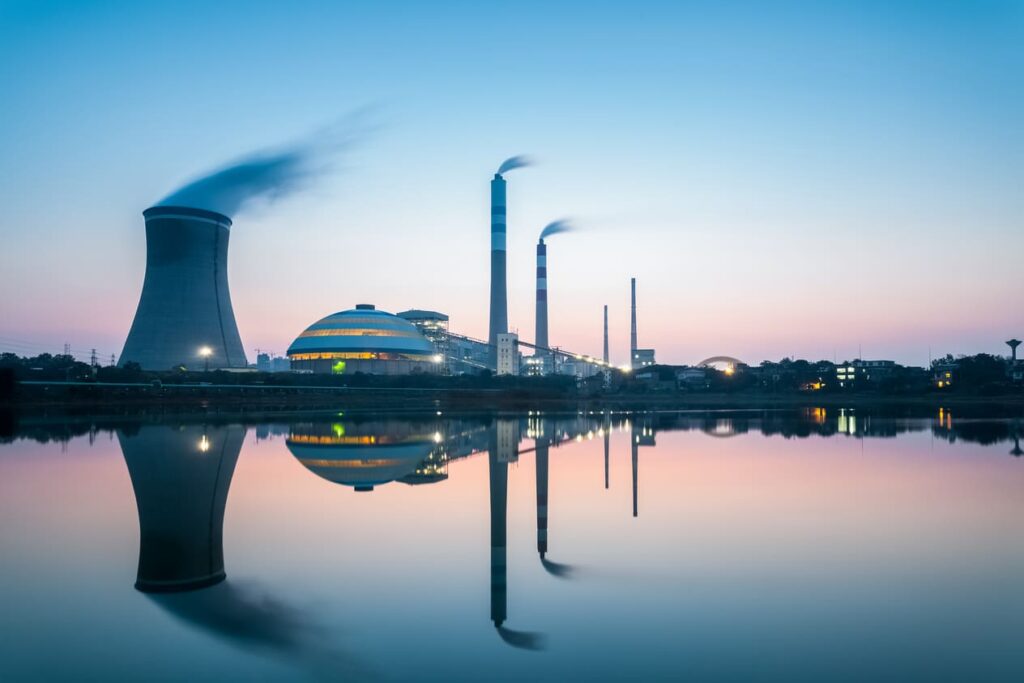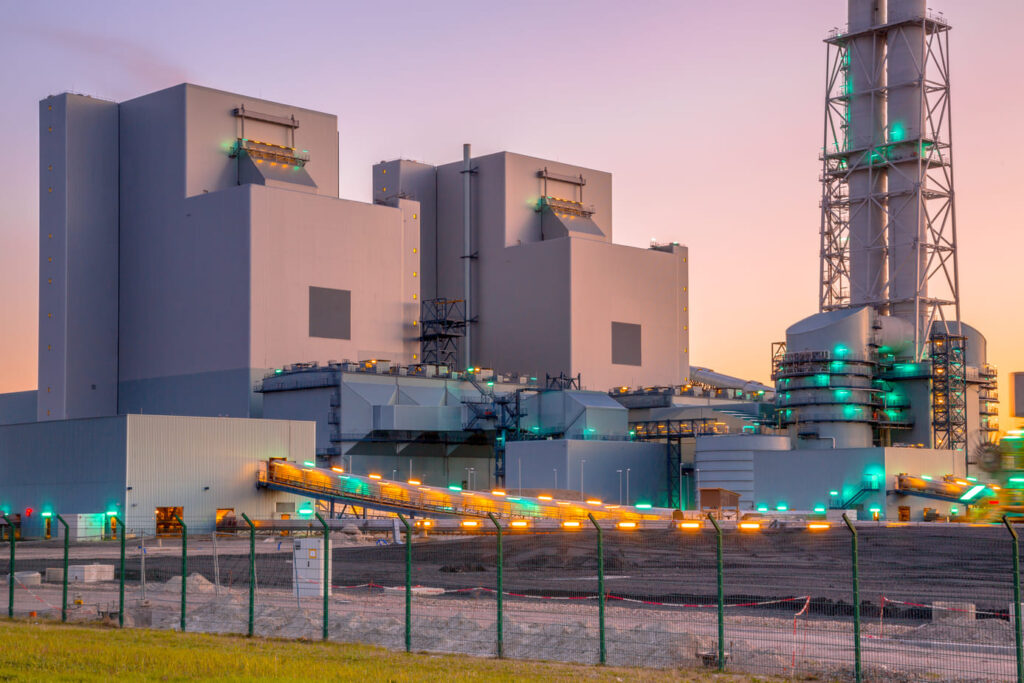Industrial Decarbonization: Key to the Energy Transition
Industrial decarbonization is a fundamental pillar in the global energy transition towards a more sustainable future. This process involves reducing greenhouse gas emissions in key industrial sectors such as steel, cement, and chemicals, which currently account for a significant proportion of global carbon emissions.
Through the use of innovative technologies, energy storage, and the integration of renewable energy sources such as solar and wind, or energy carriers like green hydrogen, industry can transform its processes toward cleaner and more efficient production. This shift not only contributes to achieving climate goals but also promotes competitiveness, innovation, and resilience in global value chains.
Industrial Decarbonization in the Context of the Energy Transition

– What is the Energy Transition and How Does it Impact Industry?
The energy transition refers to the global shift from fossil fuel-based energy sources to renewable energies such as solar photovoltaic, wind, and concentrated solar power (CSP). Industry, being one of the largest energy consumers and carbon emitters, plays a critical role in this transformation. Adapting its processes is essential to achieve sustainability goals such as climate neutrality and the Paris Agreement. In this context, technologies like green hydrogen and energy storage systems are key to decarbonizing industries that require intensive process heat.
– Industry’s Role in Reducing Global Emissions
The industrial sector contributes over 20% of global CO₂ emissions. Sectors such as steel, cement, and chemicals are the main culprits due to their high energy demands. Decarbonizing these industries is not only an environmental imperative but also an opportunity to position them as leaders in sustainability and technological innovation. Initiatives such as carbon capture, utilization, and storage (CCUS), process electrification, and the deployment of hybrid renewable energy systems are transforming industrial operations towards a net-zero emissions future.
– Integrating Renewable Energies into the Industrial Sector
The integration of renewable energies is essential for achieving industrial decarbonization. These sources not only provide clean electricity but also enable the generation of sustainable process heat, crucial in sectors such as cement and steel. The development of hybrid solutions like CSP + PV (concentrated solar power combined with photovoltaic) or industrial plants powered by green hydrogen is paving the way for a more efficient and carbon-free industry.
Environmental and Economic Benefits of Industrial Decarbonization

– Reduction of Emissions and Contribution to Net Zero Goals
Implementing solutions such as thermal energy storage and the use of renewable hydrogen significantly contributes to the reduction of greenhouse gas emissions. By decarbonizing industrial processes, companies can align with the net zero emissions targets established in the Paris Agreement.
– Long-Term Operational Savings
While renewable technologies require significant initial investments, they offer substantial long-term savings due to:
Reduced consumption of fossil fuels.
Price stability in energy supply.
Tax incentives and subsidies for sustainable projects.
– Enhanced Competitiveness and Innovation
The transition to renewable solutions drives companies to modernize and innovate their processes. This not only boosts their competitiveness in global markets but also strengthens their reputation as leaders in sustainability.
Challenges and Opportunities in Decarbonizing Industries with Process Heat
– Sectors Dependent on Process Heat (Cement, Steel, Chemicals)
Process heat poses a unique challenge in industrial decarbonization, as these operations require extremely high temperatures currently achieved through fossil fuels. Industries such as cement, steel, and chemicals need innovative solutions to replace these sources with clean alternatives.
The use of solar thermal energy, thermal energy storage systems, and alternative fuels like renewable hydrogen are viable options gaining traction in the sector. These technologies not only reduce emissions but also enhance operational efficiency.
– Thermal Energy Storage: A Solution for Process Heat
Thermal Energy Storage (TES) is a promising solution to provide sustainable process heat for industries. Unlike intermittent renewable sources such as solar or wind, TES systems can store energy in the form of heat for long periods and release it when required.
These systems ensure a continuous supply of high-temperature heat for industrial processes, resulting in greater grid stability and more efficient operations.
Technologies such as molten salt tanks and Phase Change Materials (PCM) are at the forefront of this transformation.
– Green Hydrogen as Fuel for Industrial Process Heat
Green hydrogen is emerging as a sustainable and versatile alternative for industries relying on process heat. Produced through water electrolysis powered by renewable energy, this fuel emits no carbon during use and can reach the high temperatures required for processes like steel smelting or cement production.
Its flexibility to integrate into hybrid systems alongside thermal energy storage and other renewable energy sources makes it a cornerstone of industrial decarbonization. As the cost of producing green hydrogen decreases and infrastructure expands, its adoption in critical industrial sectors will become increasingly viable.
Role of Energy Storage in Industrial Decarbonization
Solar Thermal Technology plays a crucial role in mitigating climate change and transitioning toward a more sustainable energy model. Its environmental benefits range from emission reduction to the preservation of natural resources.

– Energy Storage Technologies Adapted to Industry
Energy storage plays a crucial role in industrial decarbonization, particularly by addressing the challenges associated with the intermittency of renewable energy. Key technologies relevant to the industry include:
Thermal Energy Storage (TES): Used to capture and store heat generated from renewable sources like solar or wind energy. This heat is later utilized in industrial processes requiring high temperatures, such as metal refining or chemical production.
Flow Batteries and Lithium-Ion Batteries: While more common in electrical applications, they can also support hybrid systems where flexibility is essential.
Mechanical Energy Storage: Solutions like pumped hydro storage can stabilize industrial operations in regions with access to water resources.
– Benefits of TES for Heat-Intensive Industries
Thermal energy storage provides specific advantages for industries that depend on process heat:
Operational Stability: Ensures the continuity of industrial processes by compensating for fluctuations in renewable energy generation.
Cost Reduction: Optimizes the use of renewable energy, reduces dependence on costly and price-volatile fossil fuels, and avoids the expenses associated with CO₂ emissions.
Implementation Flexibility: Can be integrated with various renewable energy sources, making it a versatile solution for multiple industrial sectors.
Impact of Process Heat on Industrial Decarbonization
– Heat Demand in Industry
Process heat is essential for most industrial activities, accounting for approximately 74% of the energy consumption in the manufacturing sector. This heat, required for processes such as smelting, drying, and refining, largely relies on fossil fuels, resulting in significant carbon emissions.
Adopting renewable solutions, such as solar thermal energy and thermal storage, enables industries to reduce their carbon footprint without compromising operational efficiency.
– Technologies for Decarbonizing Process Heat
The integration of renewable and storage technologies addresses diverse thermal needs:
Solar thermal systems: Used to generate process heat at low and medium temperatures in industries like food processing or textiles.
Biomass: A renewable option for heat production, especially in regions with easy access to biological resources.
Thermal storage: Manages heat generated from renewable sources, ensuring its availability during periods of high demand.
– Examples of Successful Decarbonization
Leading countries in renewable integration within industry, such as Germany and Spain, demonstrate the potential to decarbonize process heat through hybrid systems that combine solar, wind, and thermal storage technologies.
Success Stories and Industrial Decarbonization Projects
Examples of Successful Projects in Europe
In countries like Spain and Germany, various industries have implemented decarbonization solutions through renewable technologies and thermal energy storage (TES), achieving:
Significant reductions in carbon emissions.
More efficient and sustainable operations.
RPow’s Role in Industrial Transformation
RPow has led multiple projects focused on decarbonization, utilizing thermal energy storage systems to meet the high energy demands of industry. Its expertise in modeling, simulation, and customized solutions positions it as a leader in the sector.
Some of RPow’s projects in this field include:
Renewable
Power Onwards
Engineers with over 20 years of experience
